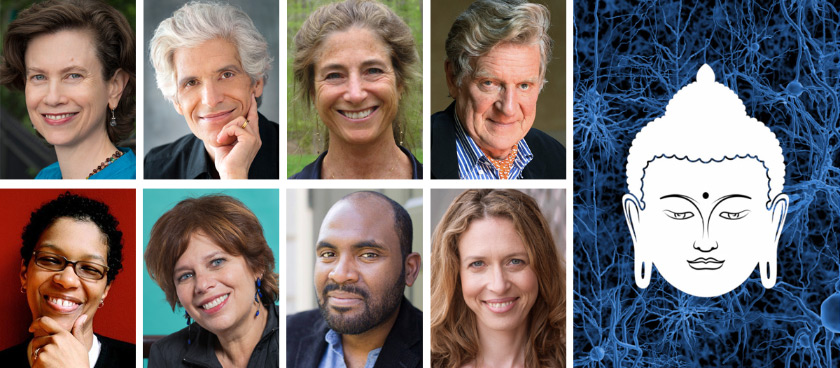By Fiona Brandon

2019–2020 San Francisco faculty include Pilar Jennings, Joe Loizzo, Tara Brach, Robert Thurman, Rev. angel Kyodo williams, Diana Fosha, Lama Rod Owens, and Fiona Brandon.
Contemplative Psychotherapy Program students were challenged by visiting faculty Mariana Caplan to, “Think of a time when you rejected a part of yourself thinking it was keeping you from deeper transformation. And see if you can call that part back. And how could you use it to deepen your practice?” What a dare! And what an inroad to the truth about why many of us stay in a state of suffering. Instead of ostracizing parts of ourselves, what if we use them as a way to create profound psychological and spiritual transformation? Is that possible? Absolutely.
The CPP Compassion Year, beginning September 20th, teaches how to use compassion practices, and the analytic wisdom of emptiness, to relate to the parts of ourselves we have deemed unacceptable and how to ultimately extinguish the cycle of stress and trauma these aspects are born from.
by Fiona Brandon
When Sharon Salzberg lead San Francisco’s 2017 Spring Mindfulness Year retreat, she playfully challenged the notion that Mindfulness, “Seems to imply a complacency: be in the present moment without reacting. Sounds dull!” The students laughed. I appreciated how Sharon addressed the popular misunderstanding that the goal of mindfulness meditation is to have no thoughts and sit in some kind of fixed non-reactive state. When in reality, the four foundations of mindfulness — the main meditation practices taught during the Mindfulness Year of the Contemplative Psychotherapy Program — are anything but static.

Sharon Salzberg with Mindfulness Year faculty Joe Loizzo, Linda Graham and Fiona Brandon.
